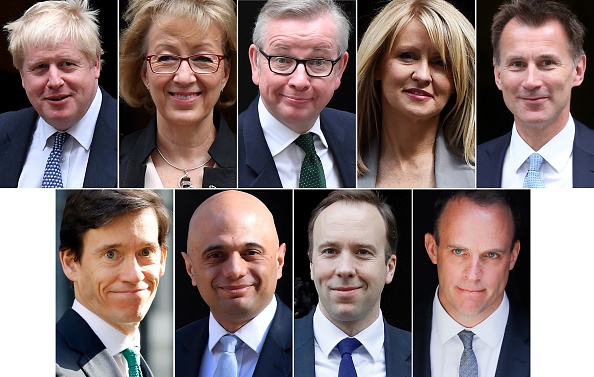They call it ‘the idiot box’ for a reason…

The competition to become leader of the Conservative Party – and, by default, prime minister – is still in its early stages, yet has already been extraordinary. We peaked at 13 hopefuls, which has now been whittled down to ten registered runners, of whom five are members of the current cabinet (four of the others resigned from cabinet over Brexit); and if Boris Johnson remains the safe money, Michael Gove has soared only to plummet on a tale of youthful excess, Rory Stewart has boosted his stock enormously by conducting a quirky, back-to-basics video campaign (despite his epic manspreading while being interviewed by Laura Kuenssberg), and everyone is still wondering why Mark Harper is standing at all. So, lots for the politicos to absorb, analyse and pick apart with all the diligence of a Roman augur.
I left the political world behind a long time ago – it was fun for a while, but it was time to move the caravan on – but I remain fascinated by the mise en scène of politics, the set dressing, the props, the optics of it all. That meant I was eager to know more when the BBC announced the arrangements for its first televised leadership debate. This is potentially a long and complicated process of election, and covering it is equally so, but essentially the deal is this: next week, with Emily Maitlis at the helm, the BBC will screen a live debate between all the candidates left standing, Channel 4 have pledged to get in on the act, and there will be a final head-to-head on the BBC moderated by the formidable Andrew Neil.
On the face of it, this all seems great. Scrutiny and exposure are good, and, let’s be honest, even a session with Andrew Neil is nothing compared to the intensity and relentlessness which any prime minister in office will face. Moreover, the public has a right to be informed, don’t they? This may be an internal election for the leadership of the Conservative Party, but the result will affect every man, woman and child in the UK, so it can’t be anything but an unalloyed blessing to have tough, searching questions put to be the hopefuls to assume the highest office in the land.
I think I agree with all of that. On balance, in the modern media age, it would seem not just peculiar but unthinkable not to have some sort of television element to the election process. The BBC are wheeling out some of the best in their arsenal, but then, short of a general election, this is the biggest political story they could cover. It’s good that Channel 4 are also getting a dog in the fight; there are real problems with perception of media bias in the post-2016 landscape, so two broadcasters is most certainly better than one.
What’s my reservation? It’s a niggle, really. Politics is becoming a personality cult – I would argue that’s been going on for years, certainly since Macmillan was resident in Downing Street – and this sort of thing only accelerates that process. Perhaps it’s inevitable, or even a good thing. But is it encouraging the development of leaders with the sort of skills they need to run UK plc, or ones who would fare well in front of Simon Cowell on The X Factor? Of course a PM must have deft media-handling skills, must be able to articulate a distinctive vision for the country, but there’s so much more than that: focus, drive, stamina, the ability to work hard and fast, strategic vision which can be dragged up from the weeds to the horizon and worry less about tactics, and – I’m almost ashamed to put this last – intelligence.
Are we going to see any of those things expressed in the television debates? Maybe, but not necessarily. People will comment on body language, dress (especially for women), facial expressions, tone of voice – I don’t expect many people to tweet that they thought that, say, Jeremy Hunt came across as having good delegation skills, or an ability to problem-solve. It’s a war of words, won with a soundbite.
I’m sorry to say that it’s a problem with no answer. But they do say that identifying the problem is half the battle. What more can we do, whether that’s politicians, image professionals, thought leaders, the public as a whole, to find new and more penetrating ways to select our political masters? If you can think of one, let me know.